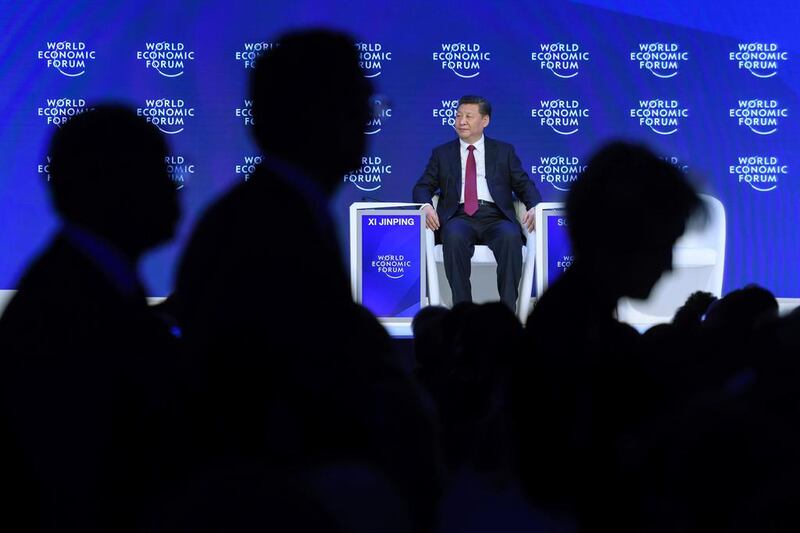Donald Trump will take his populist message directly to the world’s political and business elite later this month, becoming the first US president to attend the World Economic Forum in Davos in nearly 20 years.
Mr Trump – who ran for president on a nationalist "America First" platform – will mingle at the annual Alpine festival of globalism in Switzerland, and perhaps offer a few views of his own, the White House said.
“The president welcomes opportunities to advance his America First agenda with world leaders,” White House spokeswoman Sarah Sanders said.
“At this year’s World Economic Forum, the president looks forward to promoting his policies to strengthen American businesses, American industries and American workers.”
A string of US presidents have avoided attending the annual upscale event, fearing a sojourn to a European ski resort would make them look out of touch.
The last president to go was Bill Clinton, who attended in 2000.
The gathering might seem antithetical to Mr Trump’s brand of politics, but the White House insists his message will be the same surrounded by chalets as it would be in Washington.
Mr Trump, a real estate mogul-turned-president, has rarely shied away from the rich and famous, but may have additional geopolitical incentive to attend.
Last year, the forum was dominated by the appearance of Chinese president Xi Jinping.
Mr Xi became the first Chinese leader to go, picking up the mantle of defender of free trade and globalisation in the face of Mr Trump's protectionist rhetoric.
“No one will emerge as a winner in a trade war,” the Chinese leader warned, fueling a sense of rapidly growing China stepping into a space vacated by the United States.
During a decades-long spending spree, China has bankrolled infrastructure projects from Sri Lanka to Zambia, often earning political influence in the process.
Last year, the Trump administration was represented by informal emissary Anthony Scaramucci, who challenged Beijing to match words and deeds.
Firms were also quick to point out the gap between Mr Xi’s rhetoric and the realities of doing business in China, which is a frequently tortuous affair.
But it is unclear how Mr Trump’s pitch for America First trade will play among the disciples of a global rules-based order.
“The question appears to be whether he’ll play to the global Davos audience or use his speech to shock the crowd with the anti-globalisation rhetoric he loves to use back home,” said Scott Mulhauser, former chief of staff at the US embassy in Beijing.
"The two sides of Trump stand in particular contrast on trade and globalisation and may even both appear in the same speech," added Mr Mulhauser.
“So this one should be fascinating – and the signals he sends will be heard at home and across the globe.”
Since coming to office in January 2017, Mr Trump has ripped up or sought to renegotiate a series of trade pacts that underpin global commerce.
A series of investigations into Chinese trade practices have put his administration on a collision course with Beijing.
This year's Davos gathering takes place January 23 to 26, with a theme of "Creating a Shared Future in a Fractured World".
It is not yet clear when precisely the president will attend.






